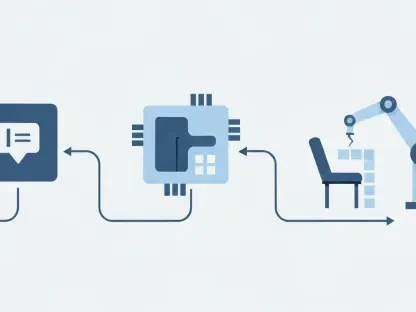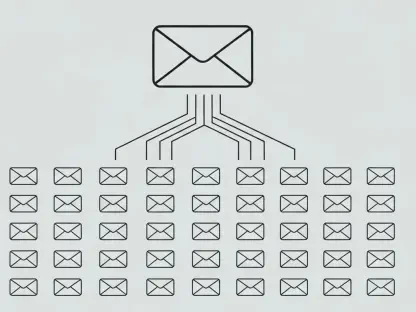The integration of artificial intelligence (AI) into Java development has become increasingly important as the demand for enterprise-grade applications continues to grow. Java developers are now able to leverage AI technologies without switching to languages like Python, which is predominantly favored in the AI community. This exploration of AI tools, libraries, and workflows shows how Java developers can build sophisticated AI-powered applications while maintaining their existing Java codebase.
Java’s rich ecosystem of AI tools and libraries allows developers to seamlessly integrate machine learning, deep learning, and natural language processing (NLP) capabilities into their applications. This integration ensures that developers can enhance their applications with advanced AI features, catering to the needs of modern enterprise software.
The Shift to Scala and Its Impact on Java Development
A notable trend in the Java development community is the shift towards Scala, a language that targets the Java Runtime and is increasingly popular for Android development and Big Data systems. This trend highlights a growing preference for languages that are compatible with the Java ecosystem while offering additional benefits in terms of performance and scalability. Scala’s compatibility with Java allows developers to make use of existing Java libraries and tools while benefiting from enhanced performance suited for handling large-scale data processing tasks.
Despite the increasing popularity of Scala, Java remains a powerful and versatile language for AI development. The availability of robust AI libraries and frameworks ensures that Java developers can continue to build advanced AI-powered applications without switching to another language. The performance and scalability benefits of Scala are certainly attractive, but the rich ecosystem of Java remains a solid foundation for AI endeavors, making it an ongoing choice for developers looking to build intelligent applications.
The compatibility between Scala and Java makes it an attractive option for developers who are looking to leverage AI in their applications. While Scala’s performance and scalability benefits make it particularly well-suited for handling large-scale data processing tasks, Java continues to offer a wealth of resources for AI development. Developers can confidently rely on Java’s robust AI libraries and frameworks to enhance their applications with sophisticated machine learning, deep learning, and NLP capabilities.
Key AI Libraries and Frameworks for Java Developers
Java developers have access to a wide range of AI libraries and frameworks that enable them to incorporate machine learning, deep learning, and NLP capabilities into their applications. Among the most notable libraries and frameworks are Deeplearning4j, Weka, Apache OpenNLP, Javacv, Deep Java Library (DJL), and Smile. Each offers unique features and benefits to developers.
Deeplearning4j is a powerful deep learning library that is part of the Eclipse Foundation. It allows developers to run deep learning projects within the Java Virtual Machine (JVM) and integrates seamlessly with Python-based AI tools and Apache Spark. This integration facilitates large-scale data management across multiple servers, making it an ideal choice for enterprise-grade AI applications. Weka is a comprehensive collection of machine learning algorithms for data mining tasks, implemented in Java. It is suitable for research, teaching, and industrial applications, providing developers with a user-friendly interface and extensive documentation.
Apache OpenNLP is an open-source Java library specifically designed for processing natural language text. It handles complex NLP tasks such as tokenization, sentence detection, and model training. OpenNLP’s robust capabilities make it an invaluable tool for developers looking to incorporate NLP features into their Java applications. Another powerful library is Javacv, a Java wrapper around OpenCV, which enables developers to leverage computer vision capabilities within their Java applications. This library provides a wide range of tools for image processing and computer vision tasks.
The Deep Java Library (DJL) supports deep learning tasks within Java, offering a high-level API for training and inference. DJL’s user-friendly interface and extensive documentation make it an excellent choice for developers looking to incorporate deep learning capabilities into their Java applications. Smile, or Statistical Machine Intelligence and Learning Engine, is a machine learning library that provides a comprehensive set of algorithms and tools for building intelligent applications. Its user-friendly interface and wide array of features make it an ideal choice for developers aiming to implement machine learning in their Java applications.
Integrating AI-Powered Chat Features in Java Applications
AI-powered chatbots are becoming increasingly popular for both internal and external use in enterprise applications. Java developers have several options for implementing chat features, with notable options including Rasa, Apache OpenNLP, and various third-party APIs. These tools and libraries enable developers to build conversational agents and manage chat workflows effectively.
Rasa is a premium product with an open-source community version that allows developers to build conversational agents and manage chat workflows. It can be integrated with Java applications through APIs, making it a versatile choice for implementing AI-powered chat features. The flexibility and robustness of Rasa make it an appealing option for creating intelligent chatbots tailored to specific needs. Apache OpenNLP, while not offering out-of-the-box chatbot features, can be utilized to build custom chatbots by leveraging its NLP capabilities. This flexibility allows developers to create tailored chatbot solutions that meet their specific requirements.
In addition to Rasa and Apache OpenNLP, external AI chat systems such as DialogFlow, Amazon Lex, and Azure AI Bot Service can be accessed through remote APIs. Java developers can integrate these systems into their applications using Java API libraries like Unirest, providing a seamless way to incorporate advanced chat features. These third-party APIs offer developers a robust set of tools to create sophisticated and responsive chatbots that can handle complex interactions and improve user experience.
By leveraging the capabilities of these AI-powered chat frameworks and APIs, Java developers can enhance their applications with intelligent, conversational agents. These chatbots can serve both internal purposes, such as employee support, and external purposes, such as customer service on company websites. The integration of AI-powered chat features into Java applications offers numerous benefits, providing users with efficient and effective communication tools.
Leveraging Generative AI and Large Language Models (LLMs)
Java developers have a wealth of AI libraries and frameworks at their disposal, enabling them to integrate machine learning, deep learning, and NLP into their applications. Among the most notable libraries are Deeplearning4j, Weka, Apache OpenNLP, Javacv, Deep Java Library (DJL), and Smile, each offering distinct features and advantages.
Deeplearning4j, part of the Eclipse Foundation, is a robust deep learning library that runs within the Java Virtual Machine (JVM). It easily integrates with Python-based AI tools and Apache Spark, facilitating large-scale data management across multiple servers, making it an excellent choice for enterprise AI applications. Weka offers a comprehensive collection of machine learning algorithms for data mining tasks, perfect for research, teaching, and industrial use, with a user-friendly interface and extensive documentation.
Apache OpenNLP is a specialized open-source Java library for processing natural language text. It adeptly handles tasks like tokenization, sentence detection, and model training, making it a critical tool for incorporating NLP features into Java applications. Another valuable library is Javacv, a Java wrapper around OpenCV, allowing developers to include robust computer vision capabilities in their Java apps, providing various tools for image processing and computer vision tasks.
The Deep Java Library (DJL) supports deep learning within Java, offering a high-level API for training and inference. Its user-friendly interface and comprehensive documentation make it an excellent option for developers looking to add deep learning features to their Java applications. Smile, or Statistical Machine Intelligence and Learning Engine, is a versatile machine learning library that offers a broad set of algorithms and tools for developing intelligent applications. With its easy-to-use interface and extensive features, Smile is ideal for developers wanting to implement machine learning in their Java projects.









